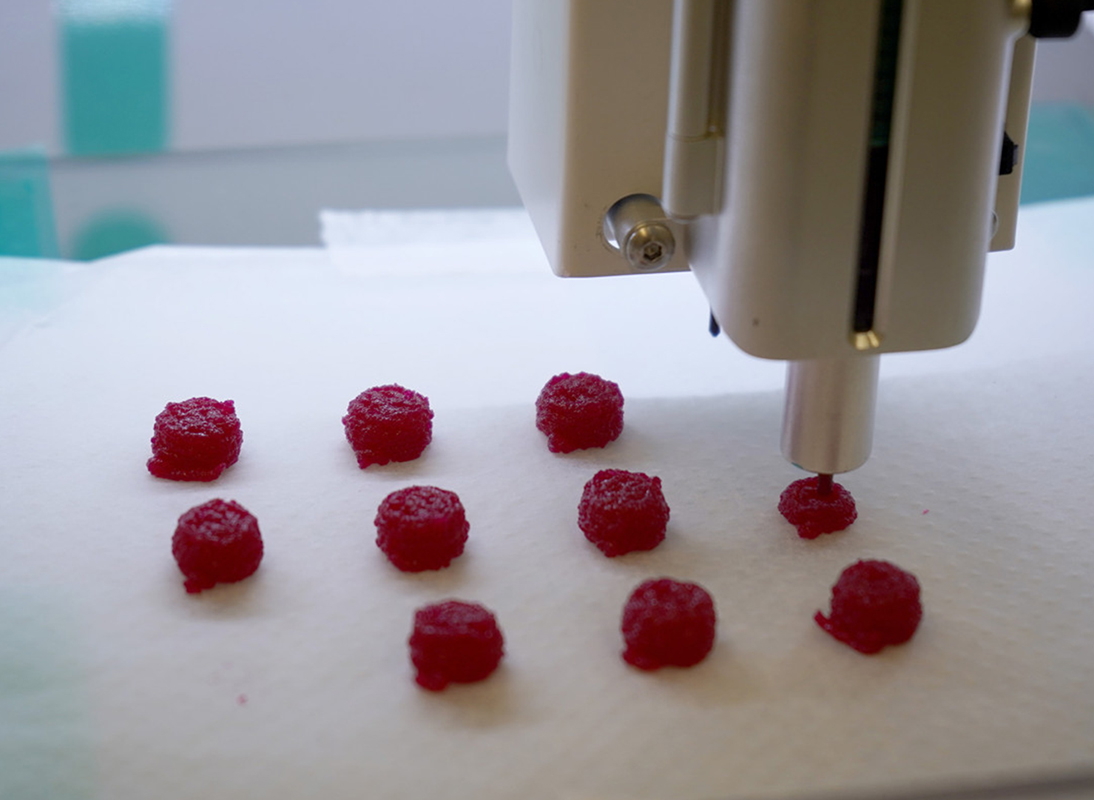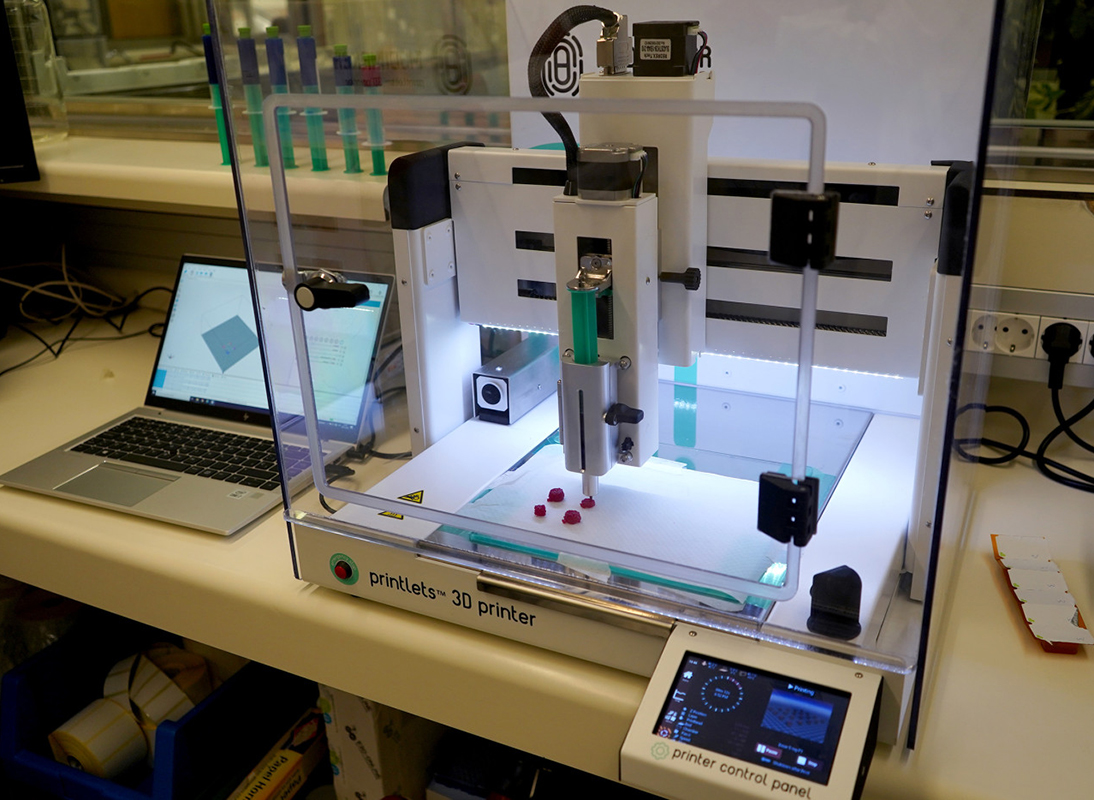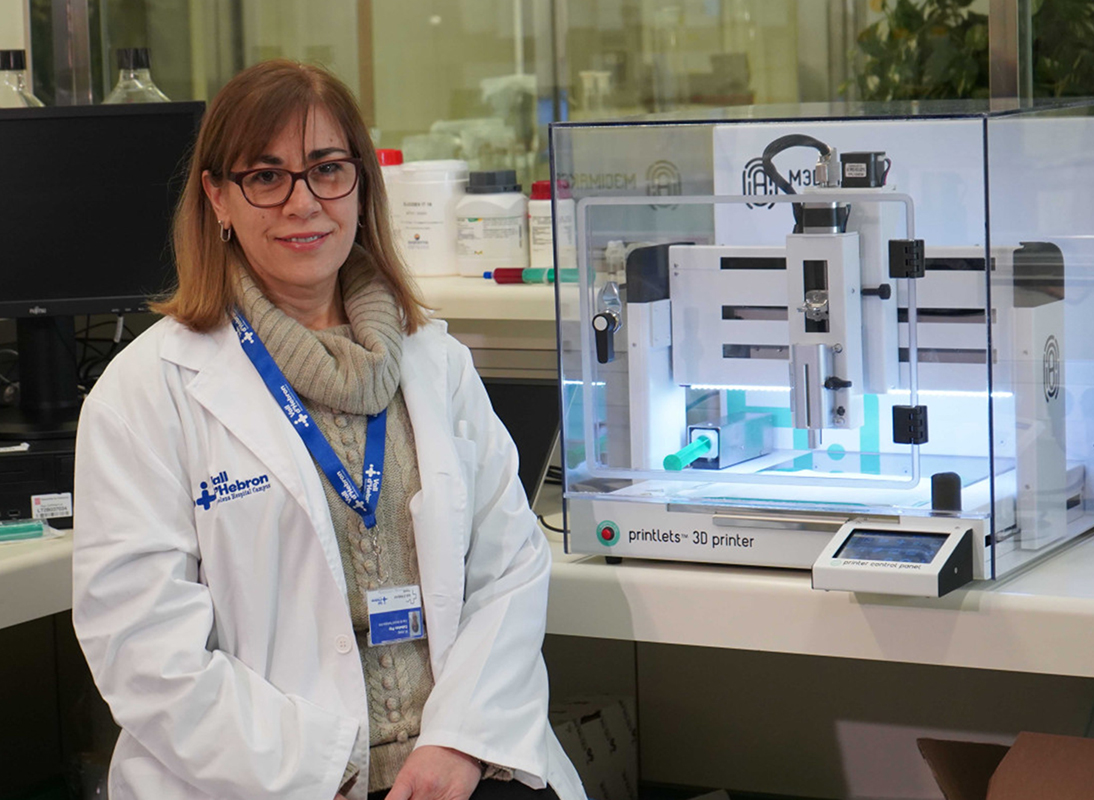3 March 2023
The efficacy, tolerability, and acceptance level of a 3D printed medicine is to be tested for the first time in a clinical trial involving children between the ages of six and 18. In its corresponding study, the Pharmacy Service of Vall d'Hebron University Hospital (Spain) is aiming to develop a way for medications to be dosed individually. It also wants to make it easier for children to take them.
The drugs, which consist of an active ingredient and suitable excipients, are being 3D printed in a semi-solid and chewable form (similar to candy). Unlike the usual treatment with syrups, this allows the dosage to be tailored to each child according to their weight and clinical characteristics.
"Until now, families have had to measure out the syrup themselves. This new method is much more convenient and avoids possible errors in the dose administered," explains Dr. Maria Josep Cabañas, head of the Pharmacy Section of the Children's Hospital and Women's Hospital of Vall d'Hebron and a researcher in the Basic, Translational and Clinical Pharmacy group of the Vall d'Hebron Research Institute (VHIR).

The drugs are being 3D-printed in a semi-solid and chewable form. Picture: Vall d'Hebron University Hospital

3D- printer at Vall d'Hebron University Hospital. Picture: Vall d'Hebron University Hospital

Dr. Maria Josep Cabañas. Picture: Vall d'Hebron University Hospital
The clinical trial will first test the efficacy and tolerability of the new formula. It will also investigate whether children accept and take the medication better – especially when they suffer from chronic diseases and need daily treatment. "Since syrups can sometimes have an unpleasant taste, we have worked to give the printed medications a taste that masks the active ingredient," Cabañas says. The taste, smell and color can even be modified to suit each child's preferences.
In addition, the 3D printing of medicines is expected to improve logistics, as such medicines do not need to be stored in a refrigerator. According to Vall d'Hebron University Hospital, most drug formulas can be 3D-printed, provided they are not affected by the heat produced during the printing process.
Tags
- Additive Manufacturing
- Medical technology
